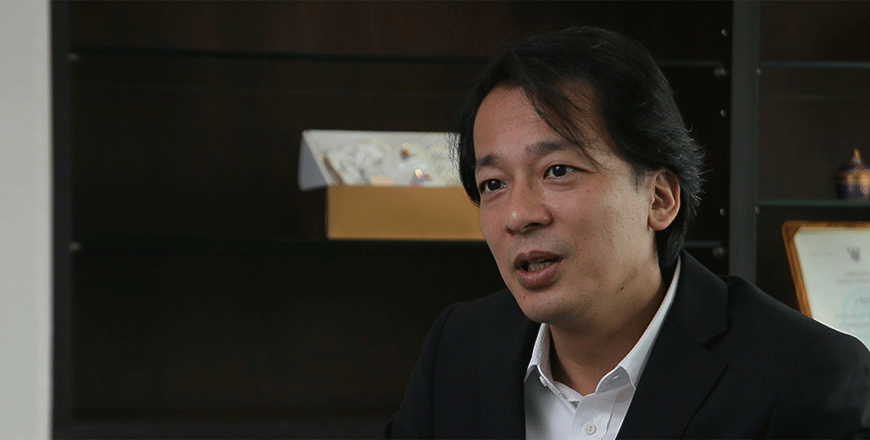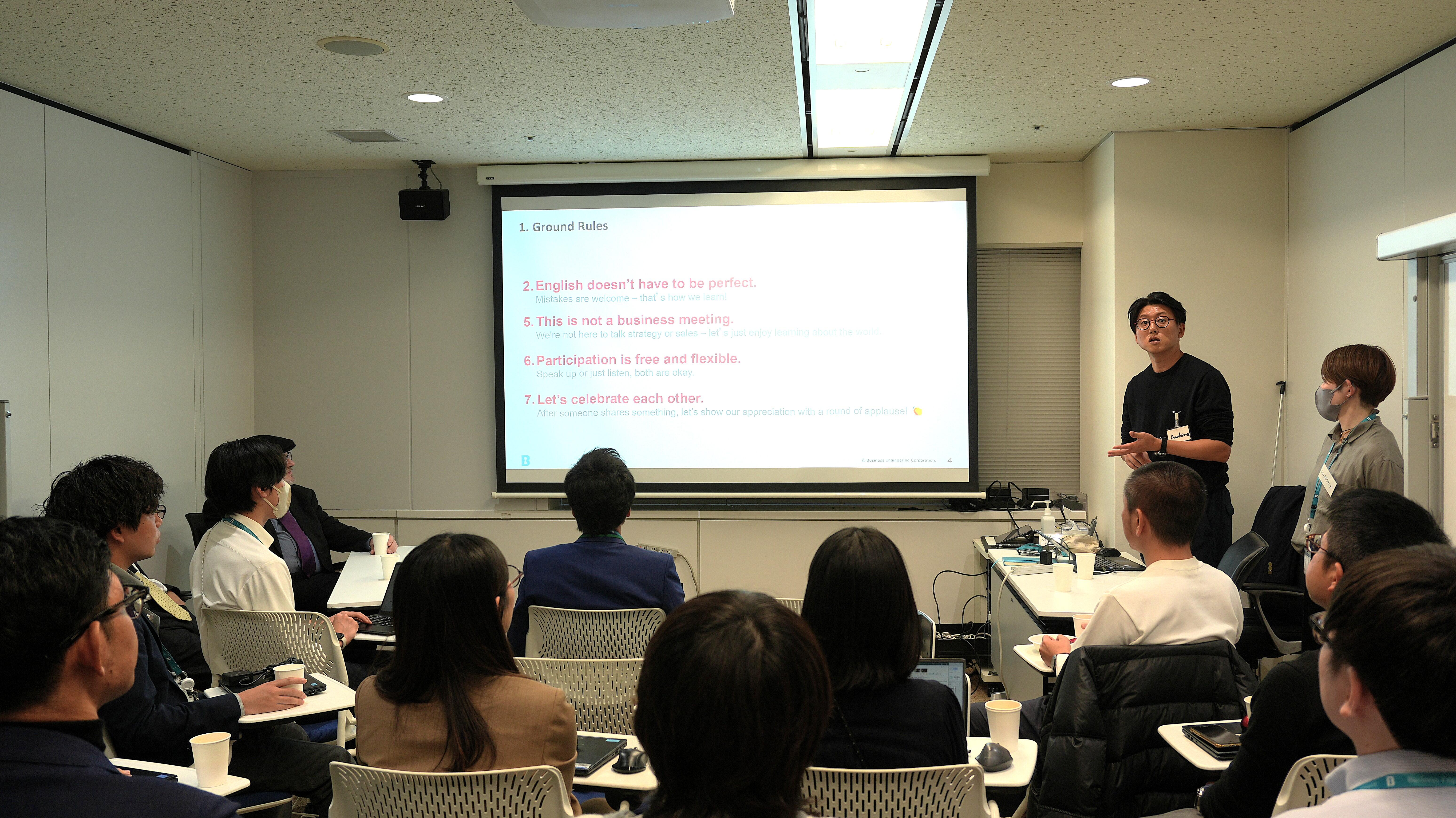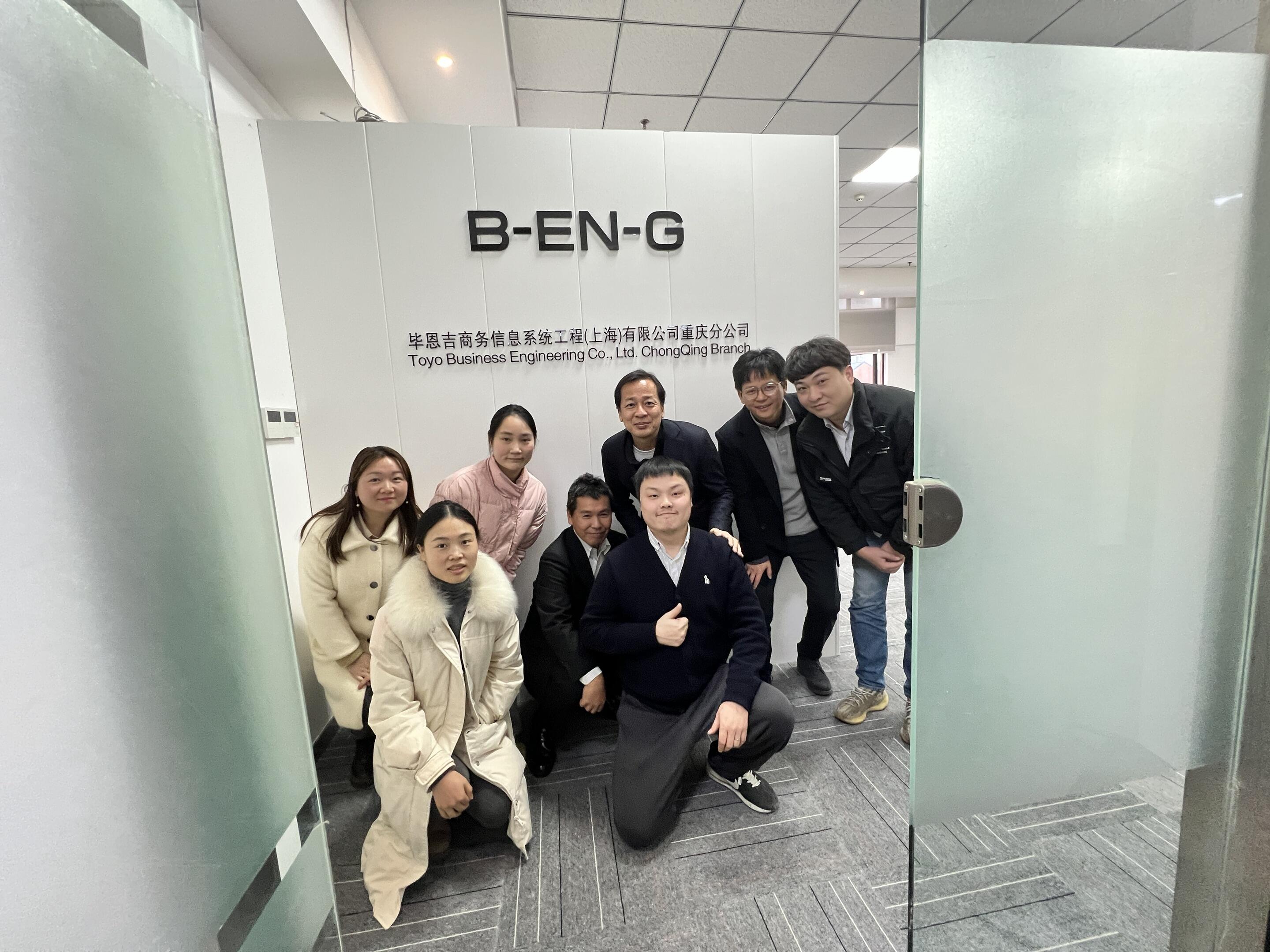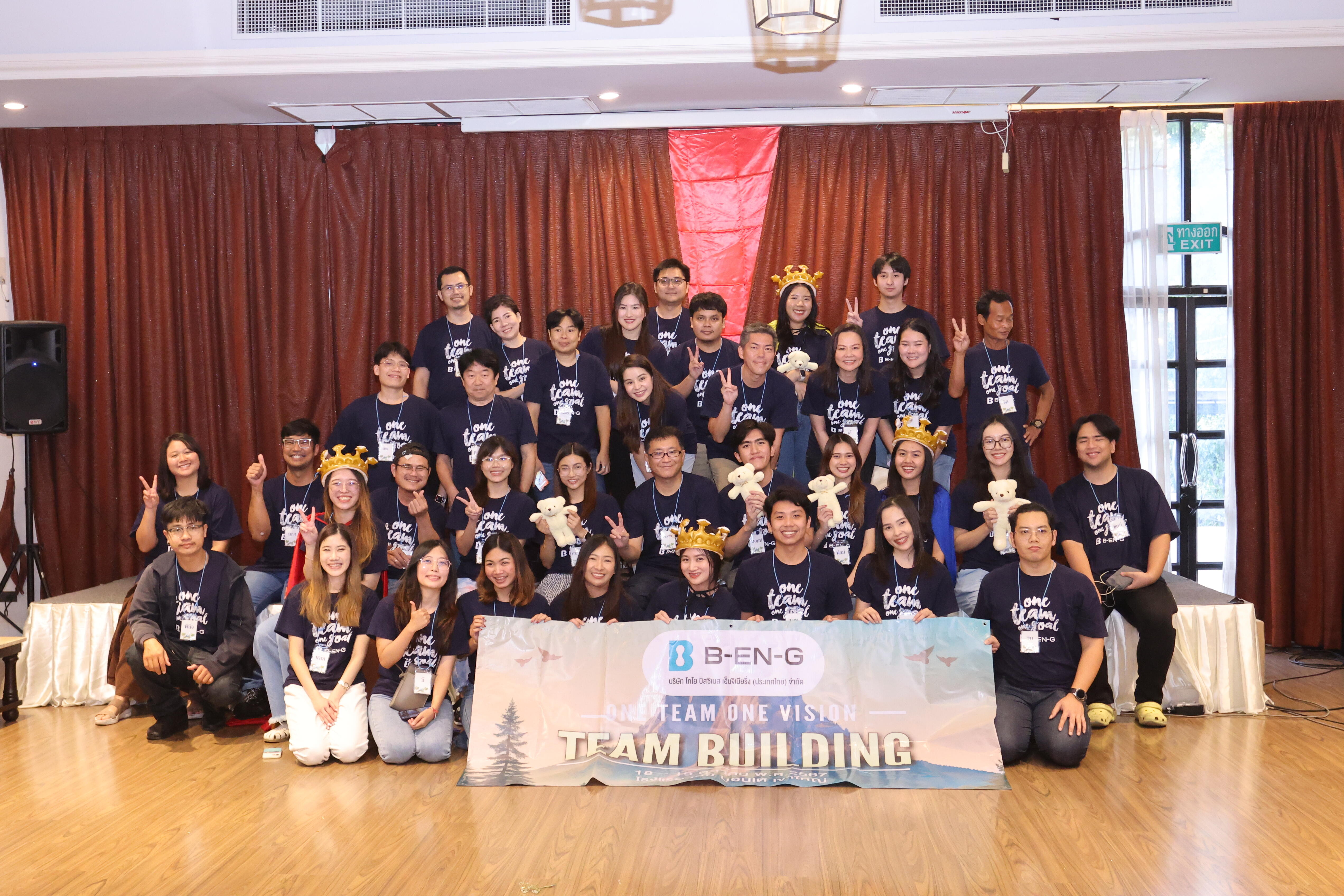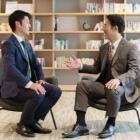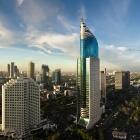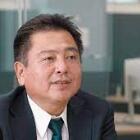In line with Thailand's growth toward the new digital age,Toyo Business Engineering (Thailand) Co., Ltd. (B-EN-G Thailand), a local subsidiary of Business Engineering (B-EN-G), has embarked on a journey toward creating new businesses. To achieve this, "independent co-creation" is essential, with Thai employees at the center of the organization, able to identify local issues and needs.
Shifting away from the "time machine business"

Yuichi Watanabe, Deputy Managing Director (current subsidiary vice president) of B-EN-G Thailand, points out, "Japanese companies in Thailand have survived on the 'time machine business', but from now on, companies that cannot grow along with Thailand's new economic development will be left behind."
A time machine business is when Japanese companies use their high level of technological expertise and rich experience to expand into countries and regions that are less developed than their own country. However, in recent years, more and more local Thai companies have absorbed new technologies and become active globally, attracting talented personnel. As a result, the difficulties of the traditional "time machine" type of business have become evident.
But that's not the only change. The advent of the digital age, in which big data and other technical information can easily cross borders and be exchanged freely between companies, is also eroding the advantage in technology and knowledge that Japanese companies have had to monopolise.
Sensing both a sense of crisis and opportunity in these changing times, the Thai government launched "Thailand 4.0" a few years ago, aiming for high added-value growth in people and manufacturing. It is an ambitious strategy to accelerate the digitalization of the economy and society, transitioning Thailand to a value-added society and joining the ranks of developed countries within the next 20 years.
Japanese companies also need to adapt to Thailand's new economic development trends and shift to run their businesses with locally-centered organizations and structures. Furthermore, they are being asked whether they can become companies that support Thailand's development. That is why "independent co-creation" is important for B-EN-G Thailand, says Watanabe.
Partnering with Thai government agencies and others on IoT

In addition to expanding production and cost management and global business management solutions such as "mcframe" to Thailand, B-EN-G Thailand has recently begun to fully expand the introduction of IoT (Internet of Things) solutions. Watanabe explains, "The use of IT has expanded from the information sharing within companies that connects people to the IoT field, where machines on the manufacturing floor and the voiceless voices of workers are picked up and utilized."
In May 2018, we signed a memorandum of understanding (MOU) with the Department of Industrial Promotion (DIP) of the Ministry of Industry of Thailand, which is promoting "Thailand 4.0." We have begun supporting the "3-Stage Rocket Project," which is being promoted by DIP to advance the digitalization and automation of small and medium-sized enterprises (SMEs). (Click here for related press release.)
The first stage of the three-stage rocket project will use various centers to visualize machinery and equipment. The second stage will utilize the IoT solution "mcframe MOTION" developed by B-EN-G to use sensors to convert the movements of workers at the work site into 3D data. By utilizing the 3D data of movements, it will be possible to identify waste, inconsistencies, and strain in human movements, improving productivity and paving the way for further automation. The third stage will involve the development of highly skilled personnel who can realize automation.
In supporting the project, B-EN-G Thailand is working with the Thai-Germany Institute (TGI), an agency under the jurisdiction of the Thai Ministry of Industry, and four universities. Watanabe said, "Through our work with TGI and the four universities, we would like to develop and deploy solutions made in Thailand in collaboration with Thai companies. Going forward, we hope to be able to export solutions based on Thai success stories to other ASEAN countries." By "co-creating" with various local companies and organizations in Thailand, we aim to create a system that will enable us to develop our business independently from our Japanese headquarters (for an article on TGI's efforts, click here).
Local Employees' Challenges

Watanabe always tells his local employees, "From now on, the world will become more data-driven." Data-driven is the idea that taking the next action based on data obtained from IoT and other sources will not only become mainstream in business, but will also support social activities.
The ERP (enterprise resource planning) and IoT data deployed by B-EN-G Thailand are on completely different levels in terms of units and types (meshes). However, he expressed his expectations to the local employees, saying, "How can we link these different meshes of data? I want you to take on this challenge."
By connecting data obtained through IoT to ERP, it may be possible to create new solutions for the manufacturing industry. Watanabe believes that it is only by taking on such difficult challenges that employees are able to think for themselves, which will lead to B-EN-G Thailand's "independent co-creation."
The importance of meeting people and learning from each other

Over the past year or two, B-EN-G Thailand has increased the cost of education for local employees and encouraged them to attend many external seminars and training sessions. Watanabe emphasizes, "If you only attend seminars within the company, your world will be limited and your perspective will inevitably become narrow. By going outside and interacting with people from various industries, your ideas will broaden."
The "User Group" where mcframe's client companies gather three times a year is also a place to learn from each other. Each time, Japanese and Thai people from nearly 10 companies gather and actively exchange information in each session. The Japanese session has been held since November 2012, and the Thai session since October 2016.
Japanese companies in Thailand have interactions with each other in industrial parks, but there are few opportunities for communication across industries, areas, and industrial parks, so topics range from import and export business processes to Thailand's personnel system, and the user group members also tour factories. "It is ultimately a customer-driven group, and B-EN-G Thailand only serves as the secretariat, but these connections are a great asset for us," says Watanabe.
Towards an organization entirely run by Thai staff

However, Watanabe emphasized at the end of the interview that "IoT and AI are just tools. Ultimately, it's the people who can use them well that are important. That's why our goal is to develop human resources." Through the process of solving customers' problems, Thai employees will gain a correct understanding of the flow of work and the issues, and will gain experience and knowledge, becoming able to think for themselves. By doing so, he went so far as to say, "I want Thai employees to think about what they can provide to customers themselves, and become an organization that can be completed by Thai people. It would be best for Japanese people to just support them from the sidelines."
The reason why Watanabe is so committed to training Thai employees at B-EN-G Thailand is because he feels that he has grown through the experiences and encounters with various people he has had during his nearly nine years of being stationed in Thailand. "Now I want to contribute to Thailand and give back," he says.
Currently, 90% of the client companies are Japanese, but the plan is to increase the proportion of local companies to half within the next five years. "In Thailand, there are no fixed frameworks or ties like in Japan, so it is an environment where it is easy to try new things. I would like to continue to cherish these once-in-a-lifetime encounters with various people and try new things together with the people I meet," Watanabe said forcefully.
(Reporting cooperation: NNA)
